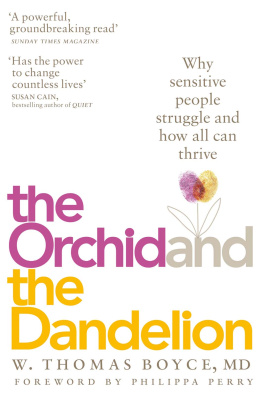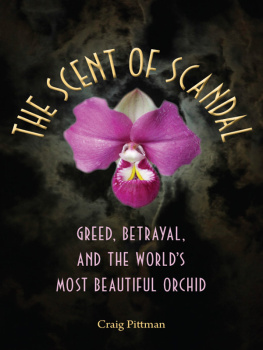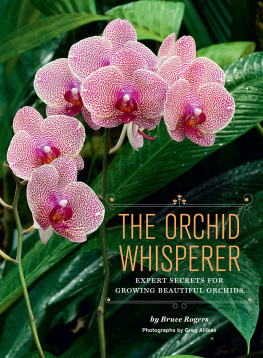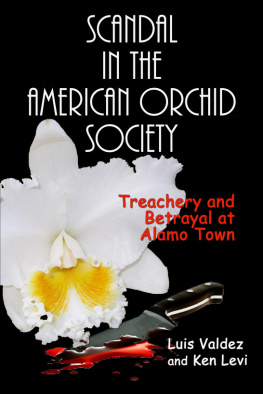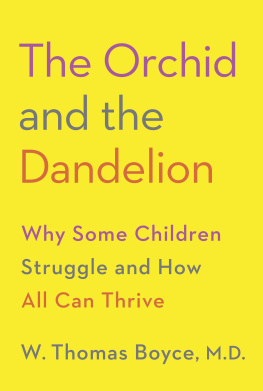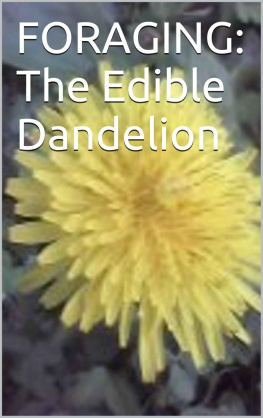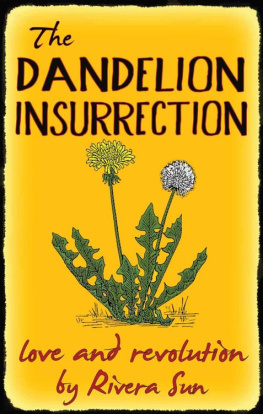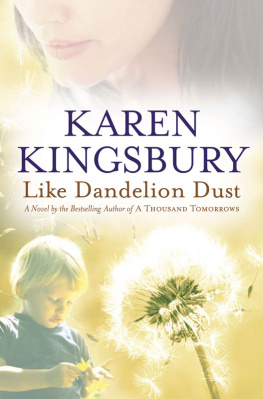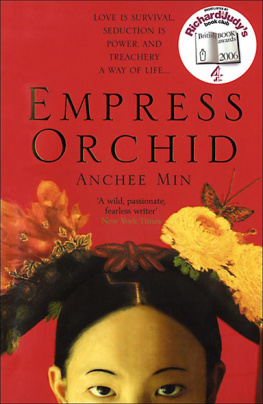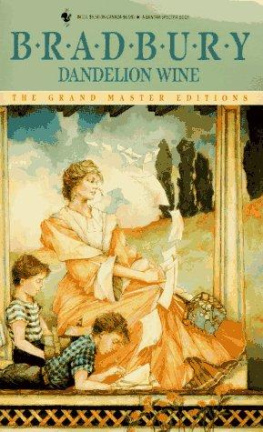W. Thomas Boyce, MD, is the Lisa and John Pritzker Distinguished Professor of Developmental and Behavioral Health and chief of the Division of Developmental Medicine at the University of California, San Francisco. He is also a member of the National Academy of Medicine and codirector of the Child and Brain Development Program of the Canadian Institute for Advanced Research. He lives with his wife in Oakland, California.
Acknowledgments
So much of human life and work rests on hidden but elemental foundations of alliance, mentoring, and friendship. The work and experiences recounted here were carried forward on the backs, imaginations, and goodwill of friends and colleagues generous enough to bear its weight alongside me. Among these are the following irreplaceable people and institutions, to each of whom and which I convey my immense and lasting gratitude.
My professional life and work has been honored, beginning to end, by the transformative affirmation of a small number of lifelong mentors. The unforeseen gifts of encouragement from John Cassel, Sir Michael Rutter, and Leonard Syme propelled me into a life of scholarship and research that I had in those early, formative years only scarcely imagined. Art Ammann, T. Berry Brazelton, Robert Coles, and Bob Haggerty became exemplars of how physician-scientists could contribute meaningfully to the enterprise of biomedical science, while concurrently testifying to the real, human tragedies and triumphs that populate the lives of the children we study.
Nancy Adler, Marilyn Essex, Chuck Nelson, Jack Shonkoff, and Marla Sokolowski gave me the consummate gift of becoming not only my most cherished and revered colleagues, without whom none of my work could have been achieved, but my friends and accomplices as well. They are the lifetime academic partners who proffered me their wisdom, passion, and abiding brilliance. Abbey Alkon, Nicki Bush, Margaret Chesney, Pam DenBesten, Bruce Ellis, John Featherstone, Jan Genevro, Young Shin Kim, Mike Kobor, Max Michael, Jelena Obradovi, Jodi Quas, Craig Ramey, Danielle Roubinov, Juliet Stamperdahl, Steve Suomi, Melanie Thomas, and Allen Wilcox likewise entrusted me with long, loyal, and treasured collegiality within the studies and projects I have chronicled in this book.
There are special places in my heart for the late Clyde Hertzman, for Ron Barr, and for the people of the Human Early Learning Partnership at the University of British Columbia, who discerned, at precisely the right moment in my career, the implications of differential susceptibility for childrens health and development and gave me utter freedom to shine light on its effects. Similarly, the astonishingly smart and creative memberships of the several research networks to which I have been honored to be a partthe Child and Brain Development Program of the Canadian Institute for Advanced Research, the JPB Research Network on Toxic Stress, the NIH-sponsored Network on Inequality, Complexity and Health, and the MacArthur Foundation Research Network on Psychopathology and Developmenttogether breathed new life into my search for the origins and consequences of human adversities. Special thanks go to the leaders of these groupsAlan Bernstein, Chaviva Hoek, George Kaplan, David Kupfer, Fraser Mustard, and Hermi Woodwardwithout whose commitments to the genius of multidisciplinarity much insight would have been lost. The Robert Wood Johnson Foundation gave me an opening glimpse into the joy and intrigue of research; the WT Grant Foundation gave me a first, indispensable research grant; and the National Institute of Child Health and Human Development and the National Institute of Mental Health offered sustained investments in my work, moving it forward in unprecedented ways.
I am indebted, as well, to the Departments of Pediatrics and Psychiatry at the School of Medicine, University of California, San Francisco, to the School of Public Health at the University of California, Berkeley, and to their deans and chairsthe late Patricia Buffler, Donna Ferriero, the late Mel Grumbach, Abe Rudolph, Larry Shapiro, Steve Shortell, and Matt State. These institutions and leaders not only trained me as a pediatrician-scientist and then invited me back, but taught me as well to think beyond the individual child to the populations in which the worlds children reside. The Lisa and John Pritzker family of San Francisco generously endowed the UCSF chair from which I am now so honored to work. And Nina Green and Tanya Erb, of UC Berkeley and the University of British Columbia, lent administrative support and friendship, giving me the room to work.
There are also friends whose enthusiasm for the ideas and writing of The Orchid and the Dandelion fostered my growing conviction that there was something worthy of sharing, among them Karen and Russ Cook, Julie and Craig Gay, Gretchen Grant, Kim and Teddi Hamilton, Mark Labberton, Bill Satariano, Lew Sprunger, John Swartzberg, Tom and Barbara Tompkins, and Bruce, Sara, Dave, and Holly Williams. Kim Hamilton, Phyllis Lorenz, and Elysa Marco also offered much valued early readings of and suggestions for the manuscript.
Vicky Wilson, senior editor and vice president at Alfred A. Knopf, provided, in addition to her insightful early reviews of the manuscript, critical editorial oversight for the structural and rhetorical approaches of the finished book. Doug Abrams, the founder and impassioned force behind Idea Architects, a literary agency with no lesser objective than to create a wiser, healthier, and more just world, played a truly guiding role in the genesis of The Orchid and the Dandelionone that would be difficult to overstate. Over a 2015 lunch initiated by Doug, I presented him with a competent preliminary outline for a scientifically sound but probably lifeless book on my work. Through his warm, persistent encouragement and gentle commentary, the inanimate outline became the hopefully far more engaging story of The Orchid and the Dandelion. Without Dougs deep editorial wisdom, along with that of Idea Architect collaborative writer Aaron Shulman, there would have been no book worthy of my readers collective time. Dougs and Aarons help allowed an inveterate writer of stuffy science to become as well (and nearly without pain) a writer of stories.
I want to thank my familiesboth my past family of origin and my present onefor the indelible and merciful roles they have played in both my life and this book. My dad and mom were caring and loving parents who taught me the undying lesson of how to work hard, with a soft heart. Like all of us, they did the very best they could with the parenting skills and insights they had accrued over lifetimes of trying. My brother, Jim, and sister, Mary, as my readers have now witnessed, have also been endearing and admired presences in my life, though Marys story remains an unintended but only partly healed wound for us all. May she rest in the peace that I believe lies beyond this troublous but thoroughly benevolent life.
Finally, I am grateful beyond words for my beloved Jill, Andrew, and Amy, who fill the cracked vessel of my soul with love, faith, and human kindness. They are those to whom, by grace, my life has been forever bound, even before I met and loved them.
1
A Tale of Two Children
It is miraculous
that flower should rise
by flower
alike in loveliness
as though mirrors
of some perfection
could never be
too often shown
silence holds them
in that space.
William Carlos Williams, The Crimson Cyclamen
T his is the story of a redemption: a story of children who, like orchids and dandelions, differ dramatically in their sensitivities to environmental conditions; a story that has gradually but steadily emerged from twenty-five years of laboratory and field research; a story in which its author is deeply invested, both scientifically and personally, as one of the researchers from whose work the story issued, but also as one of the children for whom the story became painfully and compellingly real long before there was even a story to tell.
Next page
